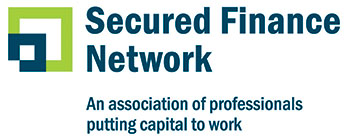
Elizabeth (Lizzie) Garner
Counsel, Troutman Pepper
40 Under 40 Category: Legal Services
Lizzie Garner is counsel at Troutman Pepper Hamilton Sanders LLP, where she represents lenders, investors, and borrowers in all aspects of financing transactions, including structuring, documenting, negotiating, amending and working out term and revolving credit facilities, syndicated credit facilities, asset-based loans, and acquisition financing. Prior to joining Troutman Pepper, Lizzie served as in-house counsel for a large regional bank, where she provided primary legal support for their corporate and investment bank and secondary legal support for the commercial and business banking line of business. In the community, Lizzie currently serves on the board of directors of Page Turners Make Great Learners, an Atlanta nonprofit that motivates and encourages students to read. Lizzie also regularly volunteers as a financial literacy teacher to inmates in Georgia’s women’s prison through the Cathedral of St. Philip’s prison re-entry ministry, and has served on the ministry’s steering committee since 2016. Lizzie lives in Atlanta with her husband, Collin, and two bossy cats.
What is your definition of success?
Finding balance, having confidence, staying humble.
Did you change the way you approach work while working remotely during the pandemic? Have these habits stayed with you as we emerge from the crisis?
Of course. Without a commute, I was able to front-load my day and get started working much earlier each day than I had pre-pandemic. This works well for me, an unapologetic morning person. Unfortunately, boundaries between work and home, already quite eroded for many of us, became truly non-existent during the pandemic, so prioritizing self-care became of paramount importance to me – whether that meant getting a run in every day (sometimes stopping at regular intervals to check email!) or making time to cook dinner. I certainly hope to hold onto all of the lessons I learned during the pandemic. So far, so good.
How do you define a good leader?
A person cannot be a truly good leader unless they are willing to get in the trenches alongside those reporting to, or working for, them. This was true when I spent my college summers as a camp counselor – campers were always way too cool to participate in an activity unless you were willing to do it, and often embarrass yourself, too – and it’s still true today – working long and late hours is made easier when you know you aren’t the only one doing so. A good leader will also be unafraid to be kind and able to take ownership, be honest, stay organized, and give credit and recognition where appropriate. The most effective leaders with whom I’ve worked have also been keenly aware of their own weaknesses and able to delegate those responsibilities to others who have the requisite strengths.
What advice do you normally give to the junior talent you mentor?
First, always be professional, but also be yourself. The most wonderful mentors I’ve had have a magic way of infusing every e-mail and interaction with character and charm. The result almost always serves to immediately put others at ease. Second, own your mistakes – it’s far better to acknowledge a mistake early rather than trying to fix it by yourself. And you may be surprised how often there is a solution that you don’t see, but an experienced colleague does. Finally, it is far better to over-communicate than under-communicate when beginning your career. Whether it’s a slipping deadline or concern you have that something doesn’t seem correct or even upcoming out-of-office plans.
What advice would you give on how to self-advocate?
No one is, or should be, more invested in your career and development than you – this means that you will have to suffer many unimaginably awkward conversations, but (1) they get easier with experience and (2) the worst thing that can happen is that you learn something. To borrow from Twain, years from now you will be more disappointed by the conversations that you didn’t have than by the ones you did.
How would you encourage young professionals to become more involved in their community or volunteer? How have these activities outside of work helped shape your professional life?
You will be more inclined to volunteer if you can connect a great cause with a personal passion or interest. Love books? Volunteer with a literacy non-profit. Really love books? Join the board. Volunteering and board membership will give you back far more than you put in – from the warm fuzzies of doing the right thing to connecting with other professionals in your area.
Professional Development Courses
- Live online classes for ABL and Factoring professionals
- On Demand classes in Appraisals, Factoring, Legal, Workout & Bankruptcy
Learn More

.jpg?sfvrsn=f1093d2a_0)
